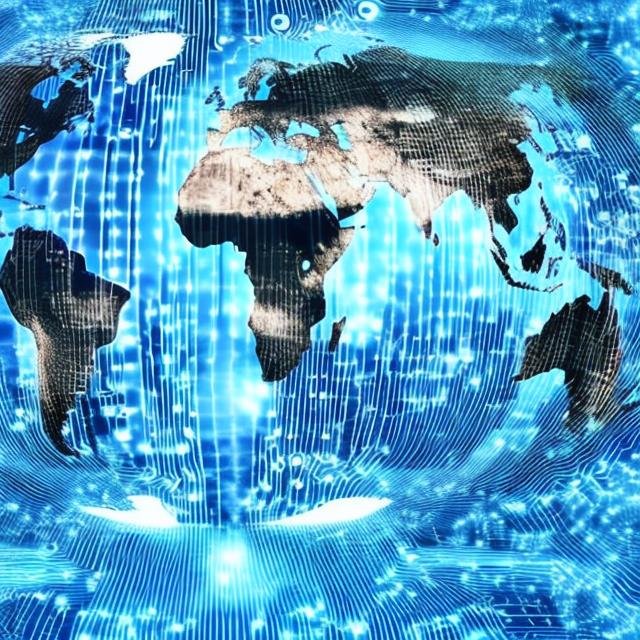The Future of Artificial Intelligence: How AI is Transforming the World.

The Future of Artificial Intelligence: How AI is Transforming the World
Introduction
Artificial Intelligence (AI) has become one of the most transformative technologies of the 21st century, impacting nearly every aspect of our lives. From virtual assistants to self-driving cars, AI is revolutionizing the way we work, communicate, and live. This rapidly evolving field has captured the imagination of researchers, entrepreneurs, and the general public alike. As we stand at the cusp of a new technological era, it is crucial to understand the implications and possibilities that AI brings to our society. In this comprehensive analysis, we delve into the diverse realms where AI is making its mark and explore the potential challenges and opportunities that lie ahead.
The Evolution of AI: From Concept to Reality
The roots of AI can be traced back to the mid-20th century when pioneers such as Alan Turing and John McCarthy laid the theoretical foundations for machine intelligence. However, it was not until recent decades that AI has truly come into its own, driven by advancements in computing power, big data, and algorithmic innovation. The journey from simple rule-based systems to today's sophisticated deep learning networks has been marked by breakthroughs and setbacks, leading us to the current landscape of AI applications and research.
AI in Everyday Life: Enhancing Human Experience
The integration of AI into our daily routines has been seamless and pervasive. From personalized recommendations on streaming platforms to predictive text on our smartphones, AI has become an indispensable part of modern life. It has streamlined operations in various sectors, including healthcare, finance, and transportation, enabling more efficient decision-making and resource allocation. Moreover, the rise of AI-powered smart devices and home assistants has redefined the concept of a connected lifestyle, reshaping the way we interact with our surroundings.
The Impact on Industries: Disruption and Innovation
No sector has remained untouched by the transformative force of AI. In manufacturing, automation and predictive maintenance have optimized production processes, while in agriculture, precision farming techniques have enhanced yield and sustainability. The financial industry has leveraged AI for fraud detection and risk management, ushering in a new era of secure and efficient transactions. Additionally, the healthcare sector has witnessed a paradigm shift, with AI aiding in early disease detection, personalized treatment plans, and drug development.
Ethical and Societal Implications: Navigating the Challenges
The rapid proliferation of AI has raised concerns about its ethical implications and societal impact. Issues such as data privacy, algorithmic biases, and job displacement have come to the forefront, demanding robust regulatory frameworks and responsible AI development practices. The need for transparency and accountability in AI decision-making processes has become crucial to ensure that these technologies serve the collective good without compromising individual rights and values. Furthermore, discussions on the ethical boundaries of AI, including its role in warfare and surveillance, require global deliberation and consensus.
Beyond the Horizon: AI and the Future of Humanity
Looking ahead, the trajectory of AI development presents both unprecedented opportunities and complex challenges. As researchers explore the frontiers of quantum computing and neural interfaces, the potential for AI to augment human capabilities and cognition becomes increasingly plausible. Concepts such as artificial general intelligence (AGI) and superintelligence pose profound questions about the nature of consciousness and the limits of human understanding. Moreover, the prospects of AI-driven advancements in space exploration, climate modeling, and sustainable development herald a future where human potential is amplified by technological prowess.
The Need for Collaboration: Fostering a Responsible AI Ecosystem
In order to harness the full potential of AI and mitigate its risks, a collaborative approach is imperative. Governments, tech companies, and civil society must engage in open dialogue to shape policies that promote innovation while safeguarding human values. Investments in AI education and research infrastructure are crucial to nurture a diverse talent pool and foster an inclusive AI ecosystem. Interdisciplinary collaborations between experts in AI, ethics, and social sciences will facilitate the development of AI technologies that align with the principles of fairness, accountability, and transparency.
Conclusion
The evolution of AI is an ongoing saga that continues to reshape our world in profound ways. As we stand at the crossroads of technological progress and ethical dilemmas, it is paramount that we approach AI development with a sense of responsibility and foresight. By fostering an inclusive and ethical AI ecosystem, we can unlock the full potential of this revolutionary technology while safeguarding the values that define us as a society. The future of AI is not predetermined; it is the collective efforts and decisions of today that will define the role of AI in shaping the destiny of humanity.
What are your thoughts on the future of AI? How do you think it will impact our lives in the coming years? Share your views in the comments section below.
What's Your Reaction?
















